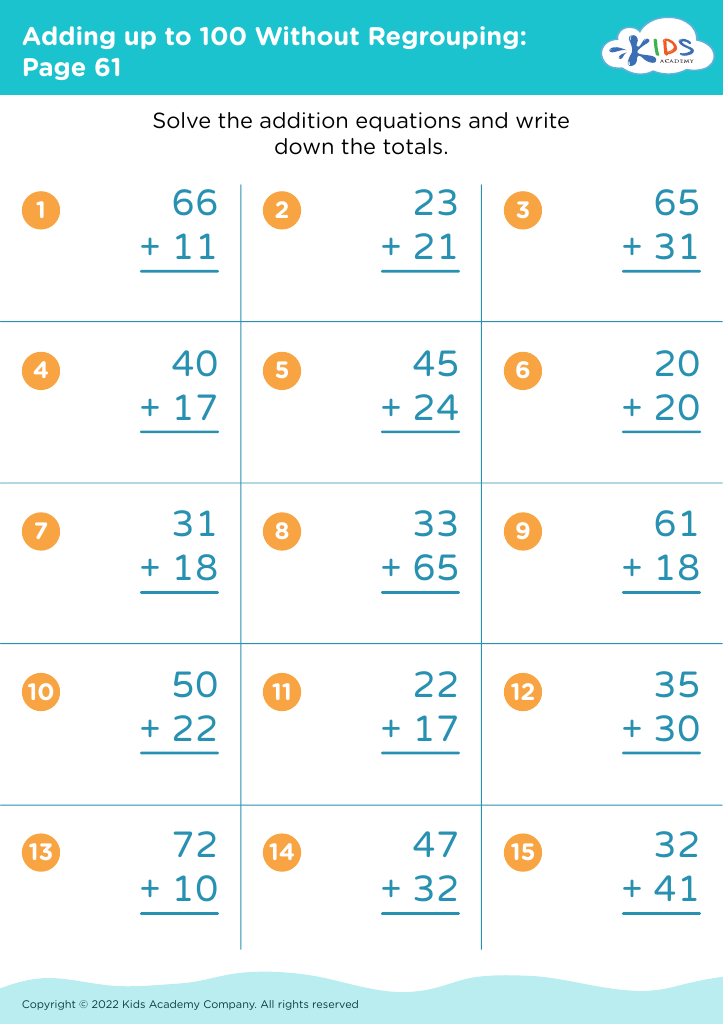Understanding division Addition Worksheets for Ages 5-7
5 filtered results
-
From - To
Welcome to our "Understanding Division Addition Worksheets" designed specifically for children ages 5-7! These engaging and colorful worksheets help young learners grasp the foundational concepts of division through the lens of addition. By integrating both operations, children will build a strong mathematical understanding while boosting their problem-solving skills. Each worksheet is crafted to foster critical thinking, encourage practice, and make learning fun. Perfect for classroom activities or at-home learning, our resources align with early educational standards to support your child’s mathematical journey. Empower your little ones with the confidence to excel in mathematics today!
Understanding division and addition is fundamental for children ages 5-7, as these skills form the backbone of their mathematical development. At this stage, children are not only learning to manipulate numbers but also beginning to comprehend basic mathematical concepts, including grouping and sharing. Division and addition are interconnected; for instance, understanding that dividing a quantity into parts relates directly to adding those parts back together.
Parents and teachers should care about fostering these skills because they lay the groundwork for future learning. Early mastery of addition and division encourages critical thinking and problem-solving abilities. When children grasp these concepts, it boosts their confidence and enthusiasm in math, making them more likely to engage with more complex topics later.
Furthermore, understanding division helps children grasp important social skills, like sharing and taking turns, which are crucial for their social development. Engaging with these operations through games and real-life situations, such as dividing snacks among friends, can make learning more enjoyable and relevant. Ultimately, nurturing these foundational skills not only prepares children for academic achievement but also promotes a love for learning, setting them on a positive educational trajectory.





















